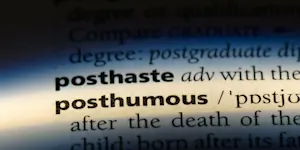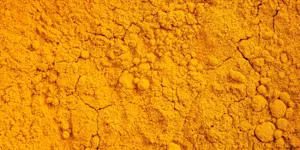What Makes This Word Tick
"Loath" describes a strong reluctance or unwillingness to do something, almost like a stubborn mule digging in its heels. It's one of those words that packs a punch with just a few letters, suggesting not just a casual disinclination, but a deep-seated resistance. Use it when "hesitant" simply doesn't capture the full depth of your unwillingness.
If Loath Were a Person…
Loath would be that curmudgeonly neighbor who's set in their ways and just can't be coaxed into trying the new organic vegetable delivery service, no matter how convenient. Picture a character with arms crossed and a firm shake of the head, embodying their own brand of charming stubbornness.
How This Word Has Changed Over Time
While "loath" has always been about reluctance, its intensity seems to have remained firm through the ages. However, modern life seems full of things people are loath to do—be it switching from a beloved news channel or password management. Perhaps its usage has grown alongside the everyday challenges of modern life.
Old Sayings and Proverbs That Use Loath
You won't find "loath" in ancient proverbs, but you can easily imagine a sage remarking, "Loath is the donkey to leave the shadow of the barn." It's an old-timey way to remind us that sometimes, habitual comfort can make us resistant to change.
Surprising Facts About Loath
Did you know that "loath" is often confused with "loathe," which means to detest or hate? It's quite the mix-up, despite their different vowels and implications! Also, "loath" is one of those words that hasn't fundamentally changed in centuries, a linguistic stalwart recalling simpler times.
Out and About With This Word
Despite not being chatty, "loath" makes its presence known with authority. It's often used in earnest writing or serious conversation, where an extra syllable or two might ease the tension. Out in the wild, you might find it in editorials, essays, or good old-fashioned letters to the editor.
Pop Culture Moments Where Loath Was Used
While "loath" might not hit the highlight reels, it pops up in television dramas and movies with characters who are adamant about their positions. It's the perfect word for a narrative reveal, when a protagonist finally admits there's something they simply cannot bring themselves to do.
The Word in Literature
In the pages of literature, "loath" often bespeaks an internal conflict, where a character's heart and mind pull in opposite directions. Think of classic novels where someone is loath to leave their homeland, or a detective loath to give up on a case, adding depth to their journeys.
Moments in History with Loath
Imagine a diplomat at the Versailles Treaty, loath to concede, hearing the echoes of "never back down" resounding in their mind. Or, a suffragette loath to silence her voice in the face of opposition, but still pressing on with determination. "Loath" sums up those pivotal moments when people stand their ground.
This Word Around the World
In French, "répugner" might carry a similar weight, while the German "abgeneigt" shares that sense of unwillingness. Both reflect the universality of human reluctance, whether you're in Tokyo, Toronto, or Timbuktu.
Where Does It Come From?
"Loath" traces back to Old English "lāth," akin to the familiar "loth." Despite its age, the essence of the word remains—resistance, opposition, and a firm line drawn in the sand.
How People Misuse This Word
People often mistakenly use "loath" when they mean "loathe," which is a much stronger emotion involving intense dislike. Another common mix-up is between "loath" and the sound-alike "loathe," which have entirely different meanings.
Words It’s Often Confused With
Loathe: Means to hate intensely.
Unwilling: A more general term for disinclination.
Reluctant: Less intense than "loath," indicating some hesitation.
Additional Synonyms and Antonyms
Synonyms include "averse," "disinclined," and "hesitant," while antonyms are "willing," "eager," and "inclined."
Want to Try It Out in a Sentence?
"She was loath to admit defeat, even when the odds were stacked against her." Here, it evokes a strong emotional resistance to giving up.
















